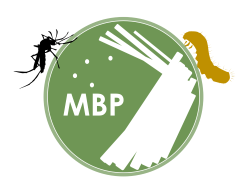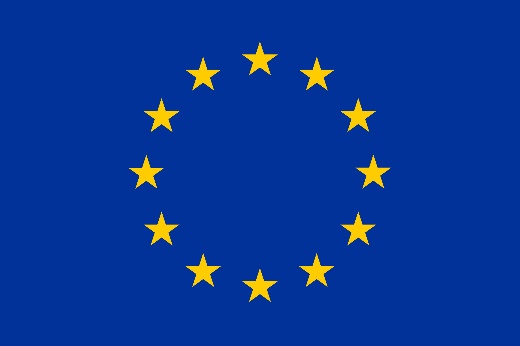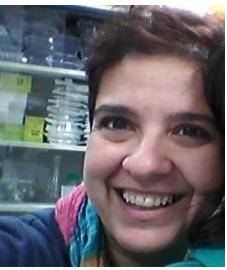

The project
ERA Chair Holder
George Dimopoulos Email: This email address is being protected from spambots. You need JavaScript enabled to view it. |
Project Coordinator
John Vontas Email: This email address is being protected from spambots. You need JavaScript enabled to view it. |
Researchers
|
Martyn Wood, CV Post-Doctoral Research Associate, Development of novel microbial pesticides and IVM/IPM tools for use against mosquitoes, other vectors and agricultural pests. Email: This email address is being protected from spambots. You need JavaScript enabled to view it. |
Joel da Cruz Couceiro, CV Post-Doctoral Research Associate, Entomology, Microbial control of insects Email: This email address is being protected from spambots. You need JavaScript enabled to view it. |
|
Juan Silva, CV Post-Doctoral Research Associate, Insecticide resistance and toxicology Email: This email address is being protected from spambots. You need JavaScript enabled to view it. |
Stefanos Mastis, CV PhD student, Olive fruit fly resistance mechanisms and alternative methods of control based on microbial bioinsecticides Email: This email address is being protected from spambots. You need JavaScript enabled to view it. |
|
Andronikos Papadopoulos, CV PhD student, Toxicology & Nanotechnology Email: This email address is being protected from spambots. You need JavaScript enabled to view it. |
Inga Siden-Kiamos Principal Researcher, Technical Overview Email: This email address is being protected from spambots. You need JavaScript enabled to view it. |
Project Management
|
Kostas Mavridis (Management, Technical Reporting) Email: This email address is being protected from spambots. You need JavaScript enabled to view it. |
Evangelia Morou (Management, Financial Reporting) Email: This email address is being protected from spambots. You need JavaScript enabled to view it. |
Technical Support
|
Ioannis Livadaras Technician, Insectarium Email: This email address is being protected from spambots. You need JavaScript enabled to view it. |
Professor George Dimopoulos
Adjunct Researcher, ERA Chair IMBB-FORTH
Email address: This email address is being protected from spambots. You need JavaScript enabled to view it.
Phone: +1 443 287 0128
Lab web page: http://www.dimopoulosgroup.org/
Dr. Dimopoulos received a BSc in microbiology from Stockholm University in 1990, a PhD in biology from the University of Crete in 1996, and his MBA from Johns Hopkins University Carey Business School in 2008. He performed postdoctoral training at the European Molecular Biology Laboratory in Prof. Kafatos laboratory between 1996 and 2001, he was a Senior Lecturer at Imperial College London between 2001 and 2003, and then joined the faculty at Johns Hopkins University Bloomberg School of Public Health, Molecular Microbiology and immunology Department and the Malaria Research Institute. He was promoted to tenured professor in 2011, and serves as a deputy director of the Malaria Research Institute and director of the Parasite Core facility. Dr. Dimopoulos is an elected member of the Alpha Chapter of the Delta Omega Public Health Honor Society, and a member of the American Academy of Microbiology. Dr. Dimopoulos’ research program broadly focuses on the innate immune systems and microbiomes of the mosquito disease vectors Anopheles and Aedes, and how these can be harnessed to attenuate transmission of malaria and arboviral diseases. His group has pioneered in studies of how mosquito immunity and microbiota influences Plasmodium and arbovirus infection virus infection. Dr. Dimopoulos’ research aims at understanding the biology of mosquito – pathogen interactions to develop novel intervention strategies. The basic science, which addresses a largely unexplored area of the tripartite interactions between parasitic or viral pathogens, the insect’s innate immune system and microbiome, is coupled to innovative translational research that aims at vector-borne disease control. His research has elucidated mechanisms by which the insect can recognize pathogens. It has clarified the innate immune pathway –specificity in controlling infections with Plasmodium, dengue and Zika virus, and discovered a variety of effector molecules that kill the parasite and mediate virus inhibition. His research program has entered a translational phase by genetically manipulating mosquito vectors to confer resistance to the human pathogens. His research team has also showed that the naturally occurring microbes of the mosquito intestine can directly and indirectly influence the mosquito's susceptibility to infection with human pathogens, as well as mosquito viability. Microbe-produced molecules mediating Plasmodium and virus-blocking, and mosquito killing, have been identified and are being pursued for the development of novel vector borne disease control strategies.
WP7 Knowledge Integration, Dissemination and Exploitation
Objective:
Το promote integration of knowledge, dissemination, exploitation and uptake to end-users
Tasks:
T7.1 Network-wide and community level knowledge integration
T7.2 Dissemination activities
T7.3 Data protection and exploitation
T7.4 Analysis of legal, regulatory and market pathways for microbial biopesticides
An effective communication system of data and guidelines
The “GAME” is a user-friendly modern ICT platform that employs interactive ways of communicating guidelines and exemplifying good practices of successful insecticide resistance management use in the health sector, will be also employed in the DMC-MALVEC project. The GAME incorporates the entomological data that will be obtained and produced by the LabDisk and the DDMS, respectively, to (1) educate end user communities about the usefulness and value of these data and (2) teach the end users how to best understand these data in terms of vector control and insecticide resistance management practices.

Data Management system to integrate and organize entomological data
The Disease Data Management System (DDMS) is a software / customized database that has been already successfully tested and used by some disease control programmes, to manage vector control data and convert information into customized reports, maps and graphs, providing a versatile and comprehensive picture of entomological and operational data for programme members and stakeholders.

A diagnostic platform to monitor mosquito populations
We will develop a fully integrated and automated multiplex vector-diagnostic platform (LabDisk) for monitoring the species ID, the infection status of mosquitoes and the insecticide resistance profile of malaria vector populations. For the first time in an operational setting, the LabDisk will enable the capture of novel, operationally relevant RNA markers, such as those indicating detoxification-based resistance, that can currently only be analysed in centralised labs using sophisticated equipment. The system will provide sample-to-answer determinations, which will substantially facilitate the uptake of protocols in target countries. It will be also capable of analysing pools of mosquitoes (as well as individuals) to perform genotyping at substantially lower cost, compared to the individual assays (PCR, ELISA, TAQMAN, microscopic examinations) that are currently extensively used in Africa. This ensures that the LabDisk system will provide relevant, timely data that is operationally applicable to resource poor malaria control settings.
Malaria, a major public health challenge
Malaria is a life-threatening disease causing more than 500,000 deaths every year in sub-Saharan Africa, mostly in children under five and pregnant women. Prevention of the disease is best achieved by vector control which, today in Africa, relies on the use of insecticides. Monitoring mosquito vector populations is an integral component of most vector control programmes and a prerequisite for effective interventions. Several individual methods are used for this task, however, in resource poor malaria endemic countries, there are many obstacles to the uptake of these protocols, as well as further challenges in organizing, interpreting and communicating vector control data.
WP6 Sustainability of Capacity and Innovation
Objective:
To ensure the long-term sustainability of the MicroBioPest
Tasks:
T6.1 Transformation to an excellence center (BIOPEST)
T6.2 Stakeholder and end user engagement
WP5 Development of formulations-prototype products
Objective:
To develop prototype products of microbial biopesticides
Tasks:
T5.1 Formulating biopesticides
T5.2 Evaluation of the non-target effects – specificity of biopesticide produc
T5.3 Suitability for commercialization
WP4 Determination of the nature and mode of action of biopesticides
Objective:
To assess the nature and mode of action of the microbial derived bio-insecticidal activity.
Tasks:
T4.1 Assessing the nature of the biopesticide’s activity
T4.2 Interrogation of biopesticide metabolites from selected isolates
T4.3: Interrogation of the basic mode of action of biopesticides













